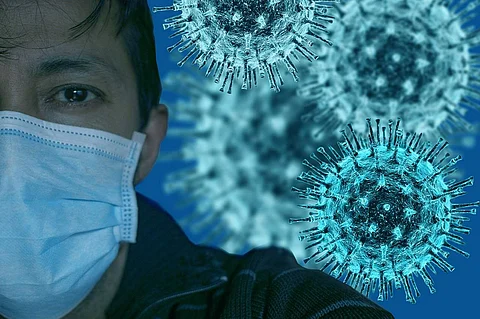

Antibodies that turn against the body's own immune systems are the reason for severe illness and death among one-fifth of COVID-19 patients, according to a large international study.
These rogue antibodies are known as autoantibodies, and are also present in a small proportion of healthy, uninfected individuals and their prevalence increases with age, which may help to explain why elderly people are at higher risk of severe COVID-19, a report said.
The findings, published in the journal Science Immunology, showed that around 10 per cent of people with severe COVID-19 had autoantibodies that attack and block type interferons protein molecules in the blood that have a critical role in fighting off viral infections The team at the Rockefeller University in New York City, first studied 3,595 patients from 38 countries with critical COVID-19, meaning that the individuals were ill enough to be admitted to an intensive-care unit. Overall, 13.6 per cent of these patients possessed autoantibodies, with the proportion ranging from 9.6 per cent of those below the age of 40, up to 21 per cent of those over 80. Autoantibodies were also present in 18 per cent of people who had died of the disease.
The researchers suspected that these devious antibodies were a cause, rather than a consequence, of critical COVID-19. The team also found that individuals with genetic mutations that disrupt the activity of type 1 interferons are at higher risk of life-threatening disease. Further, the researchers extended the probe for autoantibodies in blood samples taken from almost 35,000 healthy people before the pandemic. They found that 0.18 per cent of those between 18 and 69 had existing autoantibodies against type 1 interferon, and that this proportion increased with age: autoantibodies were present in around 1.1 per cent of 70 to 79-year-olds, and 3.4 per cent of those over the age of 80. "There is a massive increase in prevalence" with age, said immunologist Jean-Laurent Casanova at the varsity. "This largely explains the high risk of severe COVID-19 in people in the elderly population," he added.
